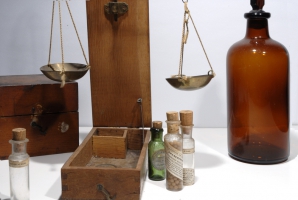Although the Greeks were the first Europeans to consider questions of astronomy, mathematics, physics, and biology, it was not until the time of Aristotle that they recognized science as a discipline distinct from philosophy. Ancient Greek Science was based on logical thinking and mathematics. It was also based on technology and everyday life.
Ancient Greek Science
The arts in Ancient Greece were sculptors and painters. The Greeks wanted to know more about the world, the heavens and themselves. People studied about the sky, sun, moon, and the planets. The Greeks found that the earth was round.

Greek Scientist/ Ancient Greek Inventors
The Greek scientist Aristarchus believed that the motions of the heavenly bodies could easily be understood if it were assumed that all of the planets, including Earth, revolved around the sun and that the stars must be infinitely far away because they seemed motionless.
Aristotle, a Greek biologist, made contributions of his own to science.All living things were the basic concern of biology. Greek biologists were interested in how living things began, how they developed, how they functioned, and where they were found.

Mathematics
By the 400’s BC, Pythagoras was interested in finding the patterns and rules in mathematics and music and invented the idea of a mathematical proof. Although Greek women usually were not allowed to study science, Pythagoras did have some women among his students. Socrates, a little bit later, developed logical methods for deciding whether something was true or not.
Ancient Greeks Geometry
Ancient Greeks developed geometry and studied astronomy, geography, and mechanics. These studies formed the basis of much Ancient Greek Science that followed. Their philosophers developed a speculative philosophy which is the foundation of much of our speculation and a good portion of our Mathematics.

Ancient Greeks Physics
The nature of sound was one area of physics in which the ancient Greeks made significant progress in understanding. Around 400 B.C., Archytas of Tarentum stated that sound was produced by bodies striking together, with swift motion producing high pitch and slow motion low pitch.
Later, Aristotle included air as a body that produces sound when struck, stating that sound was propagated by one part of the air striking the next until it reached the ear, and also correctly noted that, without a medium such as air or water, the man could not hear the sound.
Hippocrates, a physician, and medical writer is the father of modern medicine. He established a renowned school of medicine on the island of Cos, where students learned to diagnose illness through observation rather than theory.